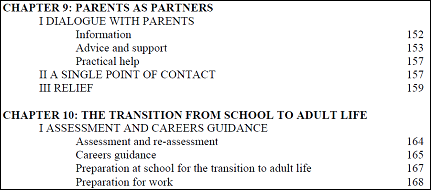2. A ‘partnership with parents and carers’?
Parents and carers play an important role in a child’s education. Schools work closely with parents and carers in relation to the wellbeing, development and education of all children who attend their school. The phrase ‘partnership with parents and carers’ has been developed to reflect that close relationship and the contribution that each makes to a child’s development and education. The partnership is of particular importance in early years settings.
But what is a partnership? The term is in common everyday use. At its simplest, a partnership is an association of two or more people (or organisations) working together towards a common goal. Those goals may be long or short term. In effect, a partnership is a team, as defined in Section 1.
In education, the idea of a partnership between parents or carers and practitioners (used here to refer to those employed as teaching staff in the school) has been around for many years. In the late 1970s, the Warnock Report reviewed provision for children with special educational needs in England and Wales. The report contained an influential chapter entitled ‘Parents as partners’ (CEEHCYP, 1978).

Considerable evidence has been gathered from academic studies and observations of the value of such a partnership. However, it is not a straightforward notion: challenges can arise when practitioners and parents or carers endeavour to work closely together to benefit a child’s wellbeing, development and learning. In particular, some parents and carers may be tentative about becoming partners; others may have had both positive and negative experiences of the school environment.
